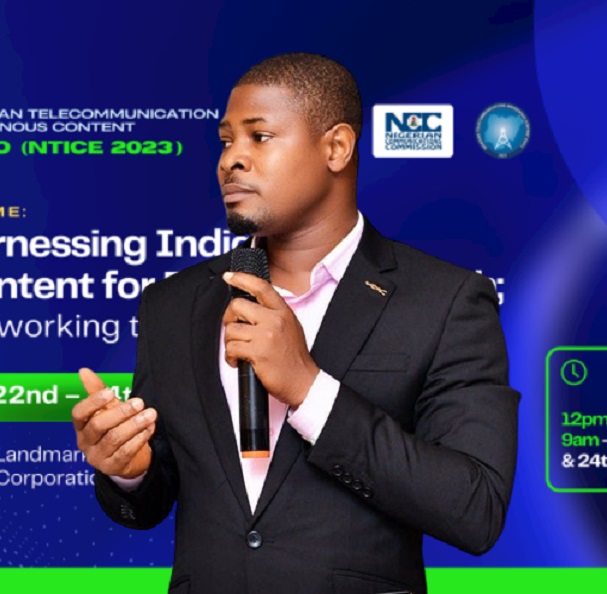Mr Omobayo Azeez, a renowned telecoms policy enthusiast, has warned that the rising skills gap challenge in the Nigerian telecommunications sector is constituting a major threat to the future of the $75.6 billion industry.
He noted this while delivering a keynote presentation on ‘Bridging Skills Gap to Accelerate the Indigenous Telecoms Development’ at the just concluded second edition of the Nigerian Telecommunications Indigenous Content Expo (NTICE 2023) organised in Lagos by the Nigerian Communications Commission (NCC).
He said for the sector to continue to thrive, telecoms companies require professionals with skills in various areas such as cybersecurity, data analytics, wireless network engineering, software development, fibre optics engineering, IP networking skills, cloud computing, and VSAT engineering among others, but which are not sufficiently available at the moment.
“The current existence of the skills gaps puts a strain on telecom firms, limiting their ability to expand, innovate, improve customer services or develop new products,” Azeez said.
According to the Convener of Policy Implementation Assisted Forum (PIAFo), while the sector is growing in geometric progression, the workforce that shoulders its day-to-day operations and support is rather depleting, a development he described as a ticking time bomb.
He said: “Available data show a high global demand for tech skilled-workers particularly in the telecoms sector. This is why the situation is even scarier for a low-middle income country such as Nigeria because high-income economies that desire similar skilled labour will always have their way enticing away capable hands and talents from here.
“This is happening already,” he said, adding that in 2022 alone, operators in the sector lamented losing over 2,000 trained telecoms personnel in Nigeria to other countries.
According to Azeez, operators are finding the gaps difficult to fill as prospective applicants often lack the required knowledge and skill set to deliver, while trained workers are leaving.
“This has hampered the rate at which operators recruit. For instance, operators across the GSM, Internet Service Providers (ISPs), Value-Added Services (VAS), Fixed Services and other subsegments of the sector have only employed additional 679 workers in the last three years, which cannot serve licensees in the sector even at a one-to-one ratio.
“Whereas, the talks around 5G, edge infrastructure, internet of things (IoT) and smart city initiatives all demand more capable hands to innovate and undertake professional tasks to achieve the future aspiration of the sector.
In his address, Azeez, who doubles as Team Lead, Business Metrics Limited, highlighted causes of the current skills gap in the sector.
According to him, they include defective educational systems, inadequate training programmes, poor remunerations, japa syndrome, global high demand for tech-skilled workers, government policies, and rapid technological advancements.
He encouraged industry stakeholders to leverage the National Policy for the Promotion of Indigenous Content in the Nigerian Telecommunications Sector (NPPIC), among other local content policies to develop homegrown talents with skill capacities that are globally competitive.
“While effective collaboration is required between government, operators, and educational, research and training institutions to bridge the gaps, the process should begin with operators by putting in place training and internship programmes within their organisations to meet their immediate needs.
“Operators should also review employees’ remuneration and welfare packages to retain already groomed talents before they are enticed with better offers in foreign markets because labour follows the money. Expatriate quota requirements and succession plan should also be adhered to,” he added.
He further underscored investments in employees’ training and capacity building to maximise available talents, adding that investments in the workforce should be prioritised the same way as Capital Expenditure (CAPEX).
“It would be a gross injustice not to acknowledge young Nigerians for their ingenuity, skills and entrepreneurial spirit, but the current skills gap identified in the ICT and the telecoms sector must not be ignored and should be jointly tackled before it escalates from an operating threat to an existential one.
“Therefore, we should commit to grooming and retaining talents to attract more investments and secure the digital future of the country,” Azeez concluded.
























































